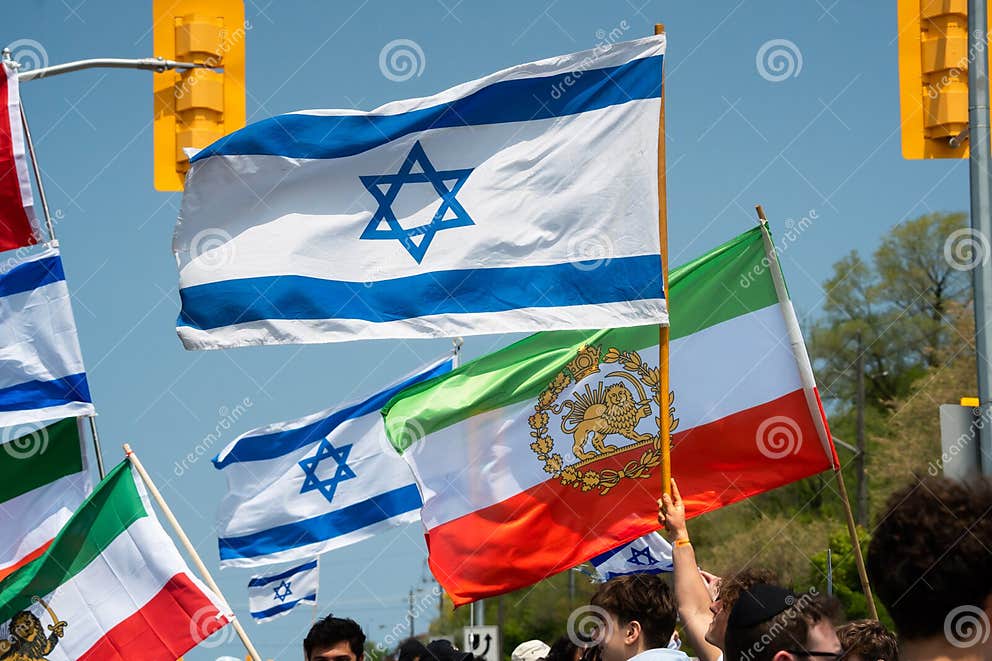Historical Tensions and Conflicts: Iranian Israeli

The Iranian-Israeli conflict is a complex and multifaceted issue rooted in historical, political, and religious factors. This conflict has shaped the Middle East landscape and continues to be a source of instability in the region.
Origins of the Conflict
The roots of the Iranian-Israeli conflict can be traced back to the establishment of the State of Israel in 1948. Iran, under the Shah’s rule, initially recognized Israel. However, the 1979 Iranian Revolution, led by Ayatollah Khomeini, significantly altered Iran’s stance on Israel. The revolution brought about a shift in Iran’s foreign policy, transforming it into a staunch opponent of Israel.
Political and Religious Perspectives
- Iran: The Islamic Republic of Iran views Israel as an illegitimate entity, a product of Western colonialism, and a threat to the security of the region. Iran’s leaders often refer to Israel as a “cancerous tumor” and a “Zionist regime.” Iran supports Palestinian groups like Hamas and Hezbollah, which are dedicated to Israel’s destruction.
- Israel: Israel sees Iran as a major threat to its existence, particularly due to Iran’s nuclear program and its support for militant groups targeting Israel. Israel has expressed concerns about Iran’s nuclear ambitions, believing they pose a significant existential threat. Israel’s leadership has repeatedly stated its commitment to preventing Iran from acquiring nuclear weapons.
The Impact of the 1979 Iranian Revolution
The 1979 Iranian Revolution marked a turning point in relations between Iran and Israel. The revolution led to the establishment of an Islamic Republic, which embraced an anti-Israel ideology. This shift in Iran’s political landscape resulted in a sharp deterioration in relations between the two countries. The revolution’s impact on the conflict is evident in Iran’s increased support for Palestinian groups, its rhetoric against Israel, and its efforts to challenge Israel’s legitimacy.
Role of External Actors
- United States: The United States has played a significant role in shaping the Iranian-Israeli conflict. The US has been a strong ally of Israel, providing military and economic support. The US has also been involved in diplomatic efforts to resolve the conflict, including mediating peace negotiations. However, the US’s close ties with Israel have often strained its relationship with Iran.
- Soviet Union: During the Cold War, the Soviet Union supported Arab states, including those hostile to Israel. The Soviet Union provided military aid to countries like Syria and Egypt, contributing to the escalation of tensions in the region.
Regional Dynamics and Security Concerns

Iran and Israel, two prominent nations in the Middle East, are deeply intertwined in a complex web of regional dynamics and security concerns. Their rivalry, rooted in historical tensions and ideological differences, has shaped the political landscape and security environment of the region. This section explores the intricate interplay of their alliances, rivalries, and the multifaceted security challenges they face.
Regional Alliances and Rivalries
The geopolitical landscape of the Middle East is characterized by shifting alliances and enduring rivalries. Iran and Israel, with their distinct ideologies and regional ambitions, have played pivotal roles in shaping these dynamics.
- Iran’s Alliances: Iran has cultivated strategic partnerships with various actors in the region, primarily driven by shared interests and a desire to counter perceived threats from the West and its regional allies. Notable alliances include:
- Syria: Iran has long supported the Syrian government, providing military and financial assistance, particularly during the Syrian Civil War. This alliance is driven by shared interests in countering Israel and maintaining a presence in the Levant.
- Hezbollah: Iran’s support for Hezbollah, a Lebanese Shia militant group, is a cornerstone of its regional strategy. Hezbollah’s military capabilities and influence in Lebanon provide Iran with a strategic foothold on Israel’s northern border.
- Hamas: While Iran’s relationship with Hamas, the Palestinian Islamist group controlling Gaza, has been less consistent, it has provided financial and military support to the group. This alliance reflects Iran’s broader support for Palestinian resistance against Israel.
- Israel’s Alliances: Israel’s regional alliances are largely driven by shared security concerns and a desire to counter Iran’s influence. Key partners include:
- United States: The US-Israel alliance is a cornerstone of Israel’s foreign policy. The US provides Israel with significant military and financial aid, along with diplomatic support on the international stage.
- Egypt: Following the 1979 peace treaty, Israel and Egypt have maintained a close relationship, driven by shared security interests in the Sinai Peninsula and a desire to counter Iranian influence in the region.
- Saudi Arabia: While the relationship between Israel and Saudi Arabia has been historically strained, recent developments suggest a potential shift towards closer cooperation. Shared concerns about Iranian influence and regional instability have led to informal discussions and potential areas of collaboration.
Security Challenges, Iranian israeli
Both Iran and Israel face a range of security challenges, including terrorism, nuclear proliferation, and proxy wars. These challenges are intertwined and have significant implications for regional stability.
- Terrorism: Both countries have been targets of terrorist attacks, often carried out by groups with ties to Iran or its allies. Israel has faced numerous terrorist attacks from Palestinian groups, while Iran has been targeted by Sunni extremist groups like ISIS.
- Nuclear Proliferation: Iran’s nuclear program has been a major source of regional tension. Israel, a declared nuclear power, views Iran’s nuclear ambitions as a grave threat to its security. The ongoing negotiations over Iran’s nuclear program are a key element in regional security dynamics.
- Proxy Wars: Iran and Israel have engaged in proxy wars in various parts of the region, supporting different factions in conflicts like the Syrian Civil War and the Yemen War. These proxy wars have contributed to regional instability and increased the risk of escalation between Iran and Israel.
Military Capabilities and Strategies
Iran and Israel possess significant military capabilities and have developed distinct military strategies to address their security challenges.
- Iran’s Military: Iran’s military is the largest in the Middle East, with a diverse range of conventional and unconventional weapons. Its military doctrine emphasizes asymmetric warfare, utilizing a combination of conventional forces, ballistic missiles, and proxy groups to deter potential adversaries. Iran has also invested heavily in developing a nuclear program, raising concerns about its potential for regional destabilization.
- Israel’s Military: Israel maintains a highly advanced and technologically sophisticated military, with a strong focus on intelligence gathering and precision strikes. Its military doctrine is based on preemptive strikes and a rapid response capability, aiming to deter potential adversaries and maintain a decisive advantage in any conflict.
Impact on Regional Stability
The ongoing conflict between Iran and Israel has had a profound impact on regional stability and peace efforts.
- Increased Tensions: The rivalry between Iran and Israel has contributed to a climate of heightened tensions in the region, increasing the risk of escalation and regional conflicts.
- Obstacles to Peace: The conflict has been a major obstacle to peace efforts in the Middle East, particularly in relation to the Israeli-Palestinian conflict. Iran’s support for Palestinian militant groups has further complicated the peace process.
- Humanitarian Costs: The conflict has resulted in significant human suffering, with civilians often caught in the crossfire. Proxy wars and regional conflicts have also led to widespread displacement and humanitarian crises.
Economic and Diplomatic Relations

Iran and Israel have been locked in a complex and often hostile relationship for decades, marked by ideological differences, territorial disputes, and proxy conflicts. Despite the deep animosity, economic and diplomatic interactions have occasionally emerged, albeit on a limited scale and often under the shadow of political tensions.
Economic Ties
The economic ties between Iran and Israel are virtually nonexistent due to the political and ideological divide between the two countries.
- Trade: Iran and Israel do not engage in any direct trade.
- Investment: There are no known instances of direct investment between Iran and Israel.
- Energy Cooperation: Iran and Israel have no energy cooperation.
International Sanctions and Economic Pressure
International sanctions imposed on Iran, primarily due to its nuclear program and support for regional militant groups, have significantly impacted its economy and limited its ability to engage in international trade. These sanctions have also served as a key tool in shaping the conflict with Israel, as they have weakened Iran’s economic leverage and constrained its ability to project power in the region.
- Impact on Iran: The sanctions have significantly impacted Iran’s economy, leading to a decline in oil exports, reduced foreign investment, and increased inflation.
- Role in Shaping the Conflict: The sanctions have played a significant role in shaping the conflict by weakening Iran’s economic power and limiting its ability to support its allies in the region.
Diplomatic Initiatives and Negotiations
Despite the deep-rooted animosity, there have been sporadic attempts at dialogue and negotiation between Iran and Israel.
- The 1990s: In the 1990s, there were some back-channel discussions between Israeli and Iranian officials, but these efforts did not lead to any concrete outcomes.
- The 2000s: In the 2000s, there were several attempts at indirect negotiations, mediated by third parties, but these efforts ultimately failed.
Foreign Policy Objectives
Iran and Israel have fundamentally different foreign policy objectives in the region, contributing to the ongoing tensions and conflict.
- Iran’s Objectives: Iran’s foreign policy objectives include promoting its regional influence, supporting allies in the region, and countering what it perceives as Western and Israeli attempts to undermine its power.
- Israel’s Objectives: Israel’s foreign policy objectives include ensuring its security, maintaining its military superiority in the region, and preventing Iran from developing nuclear weapons.
Iranian israeli – The complex and often volatile relationship between Iran and Israel has been a source of tension for decades. Both nations have a long history of conflict and mistrust, which has manifested in various ways, including political maneuvering, economic sanctions, and even military actions.
However, beyond the political realm, there are also striking similarities between the two countries, such as the impact of natural disasters. The destructive power of tropical storm Debby hurricane in 2012, for example, highlighted the need for regional cooperation in disaster preparedness and response, even in the face of political tensions.
This shared vulnerability, despite their differences, underscores the importance of addressing common challenges, potentially paving the way for future collaboration.
The complex relationship between Iran and Israel has often been characterized by political and military tensions. These tensions can sometimes have an impact on global affairs, including events like ground stop nyc airports , which can disrupt travel and trade, further complicating the already delicate situation between these two nations.
